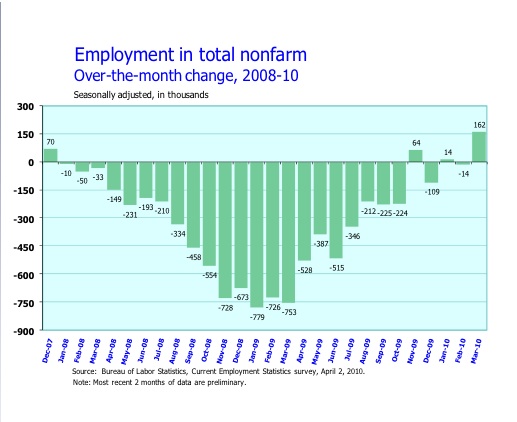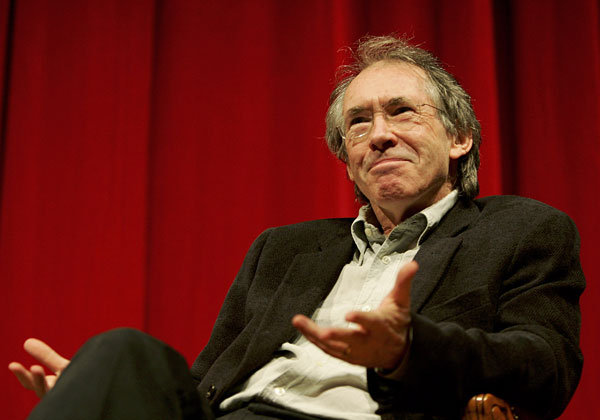Scientists have blocked cell activity in the brain’s moral reasoning region inducing people to use purely consequential reasoning rather than consider moral principles.
All Articles
New EPA standards will regulate greenhouse gas emissions from cars and trucks through 2016 requiring a base efficiency of 34 miles per gallon in six years’ time.
Ahead of Saturday’s iPad launch, CNN looks at Apple’s new computer to answer questions and distinguish it from other computers already in our homes and offices.
Romanians flocking to burger joints in their post-communist gorge may soon be subject to a junk food tax intended to reduce national obesity rates and fill government coffers.
Hirings in manufacturing and health-care industries boosted the national payroll in March though companies were more likely to take on temporary workers than full-time employees.
The recent earthquake in Chile was the fifth largest ever recorded and the U.S. Geological Survey is investigating damaged buildings there to better understand our own California.
U.K. law prohibits selecting the sex of your child unless serious medical issues are involved and this has Brits flocking to the U.S. to balance out their families.
Long denied by the government, former engineers and spies of Area 51 speak out publicly about working at the secret source of UFO folklore.
New U.S. airport security measures mark the end of broad national and racial profiling in favor of intelligence-based screening criteria.
The headline in the Atlanta Journal-Constitution sums up the story’s coverage in countless other news outlets: “CNN’s ratings continue to fall; Fox News has best quarter in network history.” The […]
But not fast enough. It’s huge news that the latest employment report (pdf) shows that the country has finally started to add jobs. It’s the first substantial increase in the […]
When I read that Republican National Committee staffers had expensed nearly $2000 worth of “meals” at bondage-themed Hollywood nightclub specializing in simulated lesbian sex, I knew it couldn’t be an […]
We’re delighted to start our blog, Hybrid Reality, on Big Think. The blog is part of a multi-year research project examining human/technology co-evolution. We explore the implications of our complex […]
Two new books — one by a Roman Catholic journalist, the other by an atheist novelist — offer modern responses to the difficult concept that Jesus was both mortal and divine.
Researchers have developed two new broadband acoustic systems that could represent a major improvement in how fish and other marine life are counted and classified.
A Tel Aviv University researcher has found that young men who smoke are likely to have lower IQs than their non-smoking peers.
Some of the most innovative baseball teams have rebuilt their teams this year around an ascendant strategy that defense is the key to victory. But can nifty glovework please homer-hungry fans?
David Brooks writes that the recession has helped teach Americans about the dangers of debt, “but there’s probably going to have to be a public crusade — like the ones against littering and smoking — to hammer the point home.”
Dorothy Parker’s popularity may have been part of the reason that academia was slow to take up her poetry, writes R. S. Gwynn. But now even feminists have taken her into the literary canon.
Has the culture of “white 20-somethings dressed in skinny jeans and lumberjack shirts, and wearing thick-rimmed glasses” begun its inevitable decline?
Twenty-one years ago, the term “mommy track” was born. Angie Kim thinks the concept “needn’t be the dull fate feminists predicted — and, increasingly, it’s not.”
David Lewis-Williams doesn’t think direct arguments against religion will have much effect on men unless they are gradually illuminated by science.
Edith Grossman found trying to translate Cervantes’ 400-year old masterpiece “Don Quixote” into modern English somewhat… Quixotic.
Many people were left gasping when President Obama unveiled his new plan for outer space, including his proposal to cancel NASA’s Constellation program. It turns out that the great recession […]
At last, a new Ian McEwan novel: Solar. The author’s website recites a list of reviews; there are so many. Tucked among them is a nod to a blog post […]
President Obama announced Wednesday that he will open up huge new coastal areas to offshore drilling. The plan would make new areas off the coasts of Virginia and Alaska and […]
Harvard primatologist Richard Wrangham came by Big Think a few weeks ago to discuss cooking and all of its evolutionary implications. Did you know that cooking is a huge influence […]
As a kid, I loved my oversized reproduction of Action Comics #1, the June 1938 issue in which Superman, the first true superhero, burst onto the scene and changed the […]
Scientists think toads may be able to predict earthquakes by sensing “pre-seismic perturbations in the ionosphere.”
“If ever there was a scientific theory that is fundamentally historical, that purports to explain change over time, it is evolution through natural selection,” writes Donald Worster.








